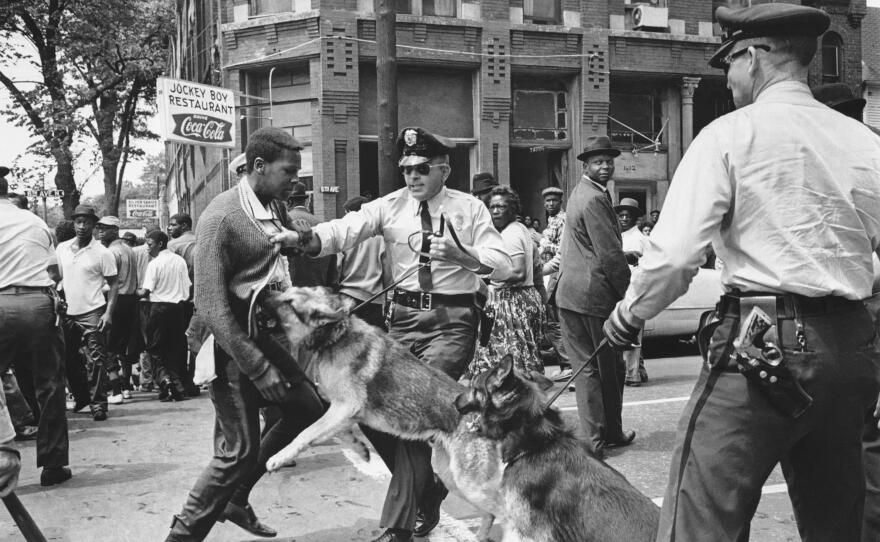Extras
Power and powerlessness in the cities of Miami and Chicago.
Preview:
S2
E8
|
0:30
Anti-discrimination rights gained in past decades by the movement are put to the test.
Preview:
S2
E7
|
0:30
A call to pride and a renewed push for unity galvanize Black America.
Preview:
S2
E5
|
0:30
Black activism is increasingly met with an unethical response from law enforcement.
Preview:
S2
E6
|
0:30
The call for Black Power takes various forms across communities in Black America.
Preview:
S2
E3
|
0:30
Martin Luther King, Jr. stakes out new ground for himself and the Civil Rights Movement.
Preview:
S2
E4
|
0:30
After a decade-long cry for justice, a new sound is heard in the movement: call for power.
Preview:
S2
E1
|
0:30
The Kerner Commission finds "two societies, one black, one white, separate and unequal."
Preview:
S2
E2
|
0:30
A decade of lessons is applied in the climactic and bloody march from Selma to Montgomery,
Episode:
S1
E6
|
56:15
A decade of lessons is applied in the climactic and bloody march from Selma to Montgomery,
Preview:
S1
E6
|
0:30
Latest Episodes
All
-
All
-
Eyes on the Prize Season 2
-
Eyes on the Prize Season 1
Power and powerlessness in the cities of Miami and Chicago.
Episode:
S2
E8
Anti-discrimination rights gained in past decades by the movement are put to the test.
Episode:
S2
E7
A call to pride and a renewed push for unity galvanize Black America.
Episode:
S2
E5
Black activism is increasingly met with an unethical response from law enforcement.
Episode:
S2
E6
The call for Black Power takes various forms across communities in Black America.
Episode:
S2
E3
Martin Luther King, Jr. stakes out new ground for himself and the Civil Rights Movement.
Episode:
S2
E4
After a decade-long cry for justice, a new sound is heard in the movement: call for power.
Episode:
S2
E1
The Kerner Commission finds "two societies, one black, one white, separate and unequal."
Episode:
S2
E2
A decade of lessons is applied in the climactic and bloody march from Selma to Montgomery,
Episode:
S1
E6
|
56:15
Mississippi’s grassroots Civil Rights Movement becomes an American concern.
Episode:
S1
E5
|
56:15













